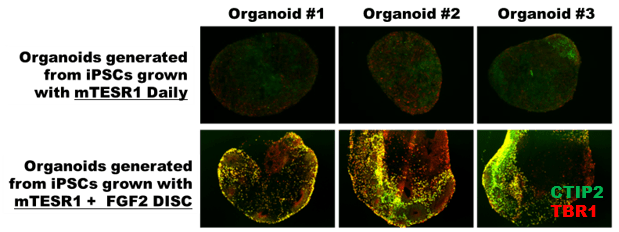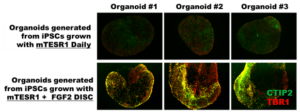StemCultures Celebrates 10 Years of Controlled Growth Factor Delivery and Innovative Discovery
Scientific discovery answers life’s challenging questions. A problem is identified, and a solution is created. StemCultures was founded on the idea that innovative science should drive solutions in the market.
Our founders culture induced pluripotent stem cells (iPSCs). After years of daily feeding cells to avoid spontaneous differentiation, they sought a better way. The problem was identified as the need for controlled delivery of growth factors to maintain high quality cultures, and the solution was created through the development of StemBeads® technology. StemBeads® offer controlled delivery of growth factors over several days, allowing less frequent feeds and higher quality cells. Over the last 10 years, StemCultures has spread the word about the importance of controlling growth factor levels to improve cell culture outcomes. We have proudly provided StemBeads® to institutions, research facilities, and academic laboratories for weekend free feeding and improved cell growth.
DISC Device Technology
Over the last year, StemCultures has improved our products, introducing DISC™ Device technology with expanded applications such as the emerging field of organoid development. The question is no longer “how do we solve daily feeding?” The question is now “how do we use the high-quality cells we’ve created to improve other downstream applications?”
This year at the International Society for Stem Cell Research (ISSCR) conference we presented data describing how growing iPSCs with an FGF2 DISC™ improves downstream cerebral organoid production. Some iPSC lines that did not generate well-patterned cerebral organoids after growth with daily mTESR1 were rescued by switching to iPSC growth with an FGF2 DISC™. Correctly patterned organoids express cerebral markers CTIP2 and TBR1 at 2 months. The iPSC lines tested in the figure show increased pluripotency marker Tra-1-60 with FGF2 DISCs™. The iPSC grown with DISCs™ produced organoids that robustly expressed the desired cerebral markers.
StemCultures continues to find challenging question and create marketable solutions to serve our customers. On behalf of the company, we thank you for your continued support. We look forward to working together on scientific discovery that solves the tangible problems that scientists face, and to the next 10 years of controlled growth factor cell culture innovation.
—-
Note: Opinions and accounts expressed herein are those of the author(s) or interviewee(s) and may not reflect those of StemCultures, its officers, or directors.

